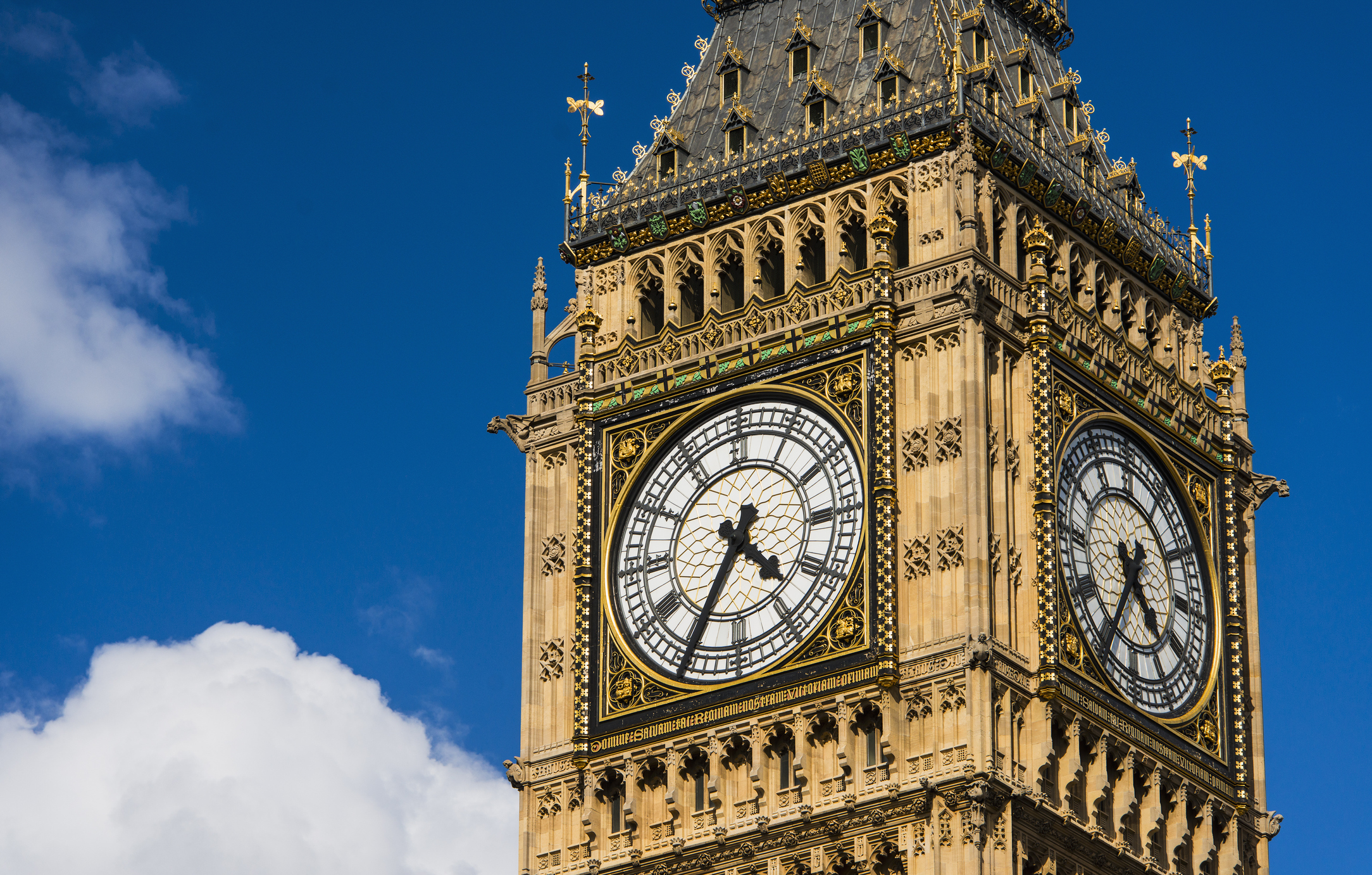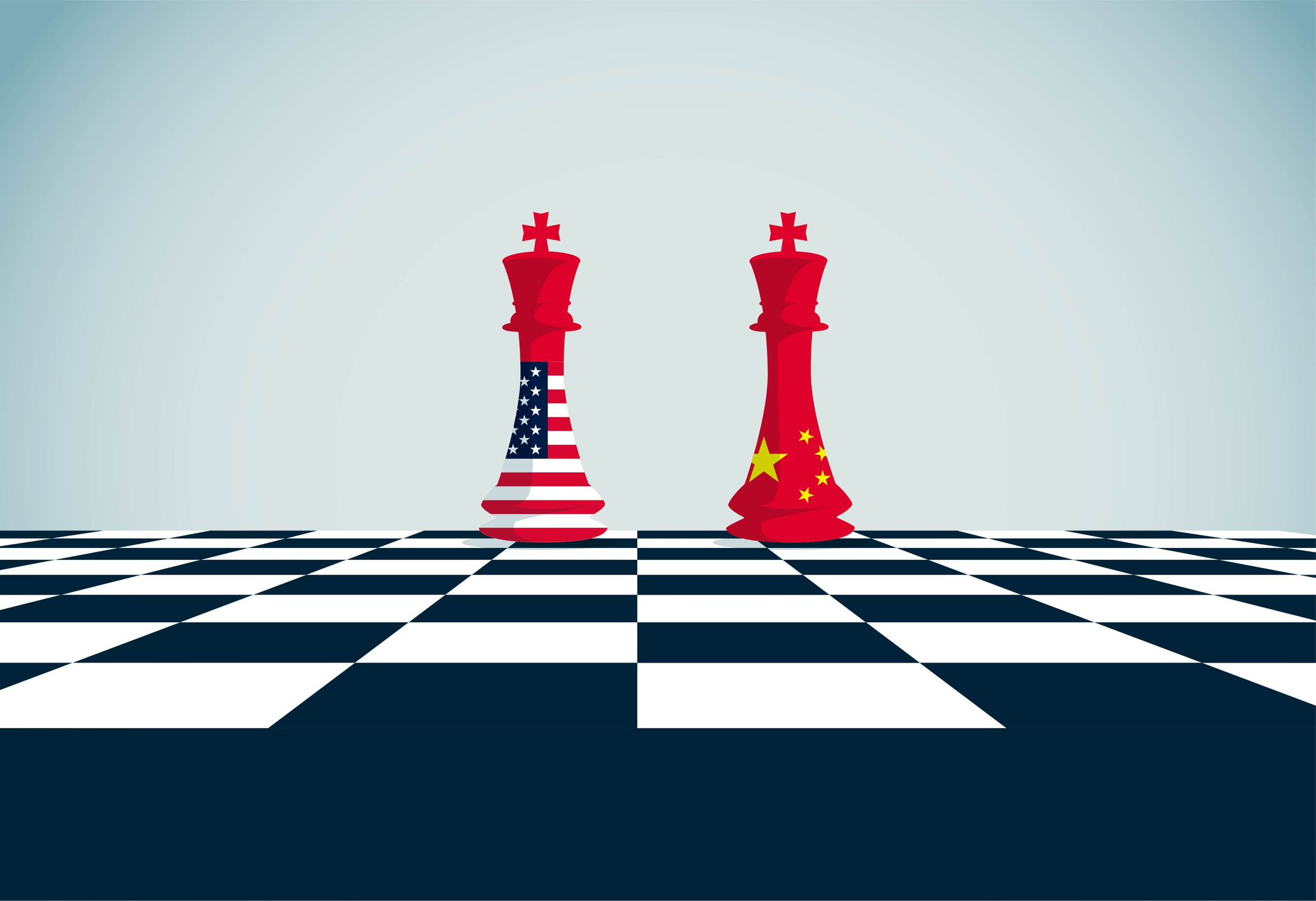The Marvel Studios propaganda mill switches teams.
Critical Times for National Conservatism

NatCon London raises unavoidable questions.
This week, I returned to the U.S. from my first trip to London in 20 years. It felt like a different country to me than it did in the summer of 2003, when I recall two different late-night bar conversations—one with some Irish people my age in Belfast, another in Whitechapel with an immigrant from Pakistan—where my interlocutors berated America, Americans, and our nation’s expanding wars in Iraq and Afghanistan. This trip, I saw no evidence that Britons are concerned with America at all. Instead, all attention seemed focused on internal problems—problems which were either non-existent in 2003 or ones about which there had been broad consensus how they could be solved.
Two decades ago, I visited a United Kingdom that was enjoying the luxury of criticizing matters unfolding oceans away. In 2023, I found a rougher Britain—a Britain seemingly awakened to the fact that their second Edwardian Summer is past and that pressing domestic crises demand new solutions.
The London meeting of the Edmund Burke Foundation’s National Conservatism conference was the third that I have attended, but the first I have observed as a foreigner. I became aware of important matters that the burgeoning NatCon movement must attend to if we are to reorient public policy around the concerns of national interest.
Tempus Loquendi
It is a well-established fact that Britain’s protections for what we Americans call “free speech” are much less robust than our own. Nevertheless, I wasn’t prepared for the extent to which British precedents about what does (and doesn’t) qualify as protected speech cast a wet blanket on public discourse. Speakers either implied or explicitly stated that they were hedging their claims due to the potential consequences of openly stating wrongthink (i.e., ideas that run counter to the interests and pieties of the regime). Even American scholar Michael Anton apparently softened his words, musing that “free speech is protected [in Britain] about as well as it is in the United States.” Because he “didn’t want to get [his] hosts into trouble,” he redirected his comments from the current American and British governments toward a state that is “absolutely safe to criticize”: Russia. I’ve seen Anton talk on a number of occasions, and I’ve never seen him pull a punch like this in America.
Meanwhile, as many other attendees have noted, there were various protests throughout the conference—the most damaging ones coming from the mainstream British media. The Guardian primed the uninformed public a week before the conference began, calling NatCon a “divisive, far-right” movement. The day after the conference had wrapped up, I watched panelists on a comedy/news program on BBC 2 excoriate the event, suggesting among other things that the movement’s nickname be changed from “NatCon” to “Nat-C.” Get it? Top notch humor, made all the more pointless by the fact that the Chairman of the organization that runs NatCon is Orthodox Jew Yoram Hazony.
Even stranger, there was also opposition on the ground. Some guy who apparently opposed Brexit brought a few friends to call attendees “fascists” as they entered and exited the building. They also placed a powerful speaker directly outside the entrance to the conference on which they very loudly played various songs meant to disrupt conversation inside. Within the hall, there was more than one individual who got past security to interrupt presenters as they spoke. The protestors inside were tossed by security. Interestingly, the speech of the protestors outside was protected.
Frankly, I was surprised by the energy of the opposition. I’ve never seen a single protestor at an American edition of NatCon: I don’t think that anything occurring there rises to the minimum level of concern for typical Americans on the political Left. Certainly, there are many U.S. “journalists” eager to write breathless warnings about the conference, but no informed citizen could honestly believe that any idea expressed at NatCon is outside the Overton window of American political discourse.
In contrast, the handful of people who gave up a few days of their lives to protest outside of NatCon in London makes me think they actually believe that NatCons are saying things that are beyond the pale in the context of English political debate. There are two possible explanations for this: the first is that the protestors are merely reacting to what the British media says about NatCon and are misinformed about the views being expressed inside. The second possibility is that the benign (from the American perspective) opinions given voice at NatCon really were outside the English Overton window.
Both of these possibilities are troubling, and for different reasons, but I don’t feel equipped to make a good judgment as to which one is more likely. What I do know is this: American leftists remind us almost daily that they intend to further restrict protected speech in the U.S. in ways similar to England. This underscores the critical task of protecting the First Amendment in America (and whatever tepid rights exist in Britain). Should our opponents succeed in raising the costs for speech that challenges the status quo, what forms of resistance would remain available to those who are not in a position to absorb those costs? And if the number of people being silenced is significant, then how can a popular political movement ever fully come into being?
Global Nationalism—a Contradiction in Terms?
There was much justified anxiety at the conference about globalism, global hegemony, and what some attendees called the threat of “transnationalism.” Hazony himself attacked an idea that he claimed has plagued the English-speaking world for 30 years: the notion that “you can be a globalist conservative.” Heritage Foundation President Kevin Roberts warned of “woke elites on both sides of the Atlantic,” implying (probably correctly) that they share a common cause. For his part, Daniel Hannan posited that every major threat of the 20th century came from “transnational movements.” Matthew Goodwin explained, “There is now a consensus that hyperglobalization has hurt the working class.”
And yet, paying homage to his friend Hazony, Heritage President Roberts noted that Yoram has “done more to unite the Right across continents and oceans than anyone.” Eric Kaufmann told the audience that our problem is “not actually globalism”; rather, it’s a loss of cultural distinctiveness. Jacob Rees-Mogg traced the “American cry of ‘No Taxation without Representation’” to English legal traditions that go back to the 13th century. Even Anton, lamenting the lot of England and the United States acknowledged, “we’re in the same lifeboat together.”
I don’t mean to suggest that the above statements are contradictory. Rather, they seem to me to expose a tension that needs to be discussed. If globalism and transnationalism are threats to both conservatism and nationalism, then is “unit[ing] the Right across continents and oceans” a viable goal? Of course, Roberts was speaking of uniting the global Right under the banner of nationalism; that is, in opposition to Davos-style, top-down One-Worldism. Nevertheless, this gives rise to some difficult questions: should the Right be opposed to globalism as such, or are we simply rejecting the terms of this present globalism—the one dominated by leftist values, secular aspirations, transnational capital, erasure of borders, and the shadow power of NGO “public-private partnerships”? If a global-nationalist movement could locate consensus on the values that would animate a different globalism—one more conducive to the interests of the nation, the family, and faith—should we reject it out of hand?
These questions are important because the power of digital technology will continue to flatten our experience of the world. Nationalism implies some degree of isolation—some deliberate separation from the peoples and places beyond the borders of the nation. Leaving aside the matter of politics entirely, it will become increasingly difficult to maintain any such separation over the course of the twenty-first century. This means that debating the downsides of globalism is a thoroughly academic exercise: instead, we’ll need to start defining the contours of an emerging global culture that would protect and promote national interests, even as those interests become increasingly intertwined with foreign allies.
England’s Problems Aren’t America’s
Compared to previous American meetings of NatCon, there was remarkably little discussion of foreign policy. In London, there was very little strategic discussion of China, Russia, India, or other nations’ relations to the United Kingdom. This surprised me. Perhaps this relative lack of concern for foreign affairs is the luxury of a people who have already come to terms with the fact that they have lost their empire. Britain is unquestionably a key Western nation and a foremost ally to America, but its days as the center of the world are long past, and Britons are reconciled to that fact. We are already at a sufficient temporal distance that the British Empire can be considered from the perspective of history. Like all empires, it was great: if that weren’t true, they could have never had an empire to begin with. Certainly, the British Empire also had its faults. But the civilizational contribution of Britain remains visible in a million ways across the globe. That’s a good thing.
America is in a much different moment. After World War II, the reins of the global order were informally passed from Britain to the United States. But since 9/11, Americans have gradually awakened to just how precarious our grasp on those reins is. There are almost no living Americans today who can remember a time when America wasn’t the preeminent power in the world. For the first time in generations, that preeminence can no longer be simply assumed. And it has given rise to something akin to panic in the American mind. We are now as concerned with the problems beyond our borders as within them. This is somewhat shocking since it suggests that no lessons were learned from the losses and embarrassments incurred over 20 years of adventuring in Iraq and Afghanistan. But the only true contender to the American crown is, of course, China. And the terms of a Chinese-led global order should be so horrifying to people across the West that I expected more concern from the British.
Still, it was refreshing to know that many of Britain’s problems are British problems that only the British can solve—a birth rate below replacement, Tories who are bringing in even more immigrants than the government they deposed, a major housing crisis, and more. America faces some similar problems but not identical ones. We can’t solve these problems for Britain nor vice versa. If it’s true that we find ourselves in the same lifeboat, we nevertheless have only so many fingers, and we’re each busily plugging the holes in our own side of it. This depicts the realities of nationalism in 2023. I recall one of the tackier slogans of the pandemic era: “Apart, but not alone!” Moving forward, we’ll need to stick even closer together if we have any hope of reaching shore.
The American Mind presents a range of perspectives. Views are writers’ own and do not necessarily represent those of The Claremont Institute.
The American Mind is a publication of the Claremont Institute, a non-profit 501(c)(3) organization, dedicated to restoring the principles of the American Founding to their rightful, preeminent authority in our national life. Interested in supporting our work? Gifts to the Claremont Institute are tax-deductible.
Detractors of nationalism indulge in dreamcasting over statesmanship.
Notes on the ground from a soul-sick Santiago.
Resurgent national sovereignty movements are back and validated by expanding electoral mandates.
Beijing has hijacked American openness.
America’s decline is not irreversible.






